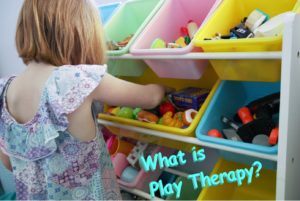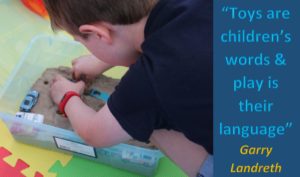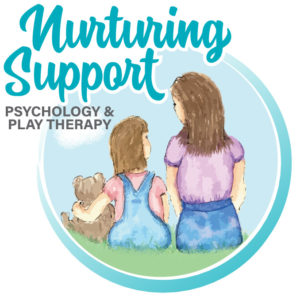Play Therapy – A Guest Blog From Nurturing Support
The lovely Lisa Mazzeo from Nurturing Support at Lawnton has written a fantastic blog for us this week on the benefits of play therapy.
This blog is perfect for anyone looking to find out more information about what play therapy is, how it works and who can benefit from it.
What is Play Therapy? 
Play Therapy is an evidenced-based approach to working with children in which children use play to express themselves and explore their underlying issues. Children can often struggle to articulate
their experiences with words, but through play, they can share their inner world, thoughts and feelings and make meaning of their experiences.
Why Play?
Play is the most natural way for children to interact with their world. Play is something all children
do, even if it might look different for different children. It is the way children learn as they explore
their physical environment and engage in social relationships.
The benefits of play include:
- Encouraging cognitive, social, emotional and physical development
- Increasing creativity, self-motivation
- Providing opportunities to learn to organise and plan, make decisions and problem-solve
Play as therapy? How does it work? 
If children’s natural communication is play, then it makes sense they would naturally gravitate toward using play to “talk about” their feelings and experiences and also use this as a way of telling others what is happening for them. Children ‘play out’ their issues, in the same way an adult might ‘talk out’ their issues. Just like when adults talk through their difficulties, when children use play to explore their difficulties, they can process these issues, come up with their own solutions and, in general, they feel better.
While play might look like the children are having lots of fun, there is so much more to play therapy
– it is not just play. Children’s play has meaning and this is the most effective way for children to
communicate and express themselves. When they do this in a play therapy session, it is also a safe
environment for them to express what they might not be able to in other areas of their lives. Play
provides enough distance for the child to feel safe in telling their story. Play in therapy can be hard
work for some children, for example, those who have experienced trauma.
Play therapy allows a space for children to work through these really big and difficult emotions and
helps them to feel truly seen and heard throughout this process. In being seen and understood,
children can heal and begin to move forward, grow and learn new skills.
The play therapist’s job is to help children express and understand their feelings and experiences,
but most importantly, to help children feel accepted, understood and cared for in the telling of their
stories.
Who can benefit from play therapy?
Play Therapy is best suited to children aged 2-12 years and is appropriate for a range of presenting
issues including anxiety/depression, trauma, emotional/behavioural concerns, ASD, ADHD and
school refusal.
Through play therapy, children learn to accept their feelings and express them more responsibly,
learn self-control and self-responsibility, develop a more positive self-concept and become more
confident and self-accepting.
Interested in learning more about Play Therapy?
Visit the Association for Play Therapy at https://www.a4pt.org/page/ParentsCornerHomePag or the
Australian Play Therapy Association at http://apta.asn.au/about-play-therapy/.
If you would like to discuss if play therapy is suitable for your child, feel free to contact Nurturing
Support Psychology and Play Therapy for a confidential discussion on (07) 3419 4209 or via email on [email protected].

Lisa Mazzeo
Psychologist and Play Therapist
Nurturing Support
References
Bratton, S., Landreth, G., Kellam, T., & Blackard, S. (2006). Child Parent Relationship Therapy (CPRT).
Routledge.
Cochran, N., Nordling, W., & Cochran J. (2010). Child-Centred Play Therapy. John Wiley & Sons.
Marshall, D (2012). Playing Alone: How unstructured play improves children’s health. Child Health
Talk, 2, 3-4.
VanFleet, R (2012). Playing Together: Building strong children and families with play. Child Health
Talk, 2, 5-6.
Wexler, E (2014, Jul 2). Too many structured activities may hinder children’s executive functioning.
Education Week.
http://blogs.edweek.org/teachers/teaching_now/2014/07/study_too_many_structured_activities_h
inder_childrens_executive_functioning.html?cmp=SOC-SHR-
FB&fbclid=IwAR23mqJVQgZzD4SPdWSI2u0fuGn5qQbZscvh2dCldNHsNokuIquE52ZSY2M
